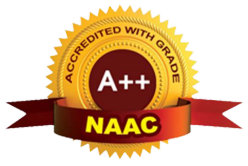IGNOU to establish India's first Sign Language Research Centre
23 July, 2011
The Indira Gandhi National Open University (IGNOU), in collaboration with the Ministry of Social Justice and Empowerment, Govt. of India, will establish the country's first Indian Sign Language Research & Training Centre (ISLRTC) at the University campus to promote the use of Indian Sign Language (ISL), Vice Chancellor Prof. V.N. Rajasekharan Pillai has announced.
The Research Centre will start functioning with training programmes, making use of the existing facilities and availing national and international experts in the field with effect from September 1, 2011.
Its broad objective is to carry out research in ISL and create linguistic record/analysis of the language, promote research on bilingual approach in education of deaf children, train persons in sign linguistics and other related areas at various levels.
Thirty-five academic posts have been created for the Centre. It will be established with 100 percent funding from the Ministry and as per terms and conditions set out in this order. Estimated cost of construction of it’s building and equipment is Rs.20.00 crore and Rs.5.00 crore respectively. Administrative approval for construction of building and purchase of equipment will be accorded subject to the above ceilings, by IGNOU as per its procedure and by its authorities competent to accord such approval for IGNOU’s own projects.
The Research Centre aims to design, promote and offer programmes in ISL, interpreting and bilingual education, at various levels through various modes including the distance mode.
It will develop and offer courses aimed at training teachers to teach ISL, develop and create resources for use in teaching of ISL to children, parents, teachers and the general public; facilitate educational use of ISL in special schools as the first language or medium of instruction and in mainstream schools as a second language or as interpreter mediated language of classroom communication.
ISLRTC will also provide guidance in innovative education methodology for institutions providing education to the deaf. The Centre will collaborate with other institutions and organisations of the deaf to promote and propagate ISL and also with universities and other educational institutions in India and abroad in sign language research, deaf studies, and related areas.
To produce and promote visual material in ISL story telling of both Indian and global literature and deafness related issues, it will create and promote literature in and about ISL to facilitate print and visual media in promoting the use of ISL. Such an activity will foster the development of Deaf identity and culture and to act as a clearing house of information on ISL, deafness, education of the hearing impaired and related areas.
IGNOU has been offering programmes in Sign Language including a B.A. in Applied Sign Language sponsored by U.K-India Education Research Initiative (UKIERI) for the last 3-years. This is the first of its kind in the country.
In India, most sign language tutors have no formal qualification, and most teachers in schools for the deaf do not have any sign language qualification. In this context, the Staff Training and Research Institute in Distance Education (STRIDE) at IGNOU and the University of Central Lancashire (UCLAN), the United Kingdom, worked together to systematically develop new approaches to distance education in the sign language medium.
One of the key achievements of this U.K.-India Education Research Initiative (UKIERI) was the launch of IGNOU’s BA programme in Applied Sign Language. IGNOU started this programme in 2009. Now there are three batches with learners from India, Africa, China, Nepal and Malaysia. For the first time, deaf students in India are able to access university education through the medium of sign language and gain an academic qualification with a dual award from U.K and India.



